Archiv článků
Prohlédněte si všechny články a objevte více zajímavých témat!
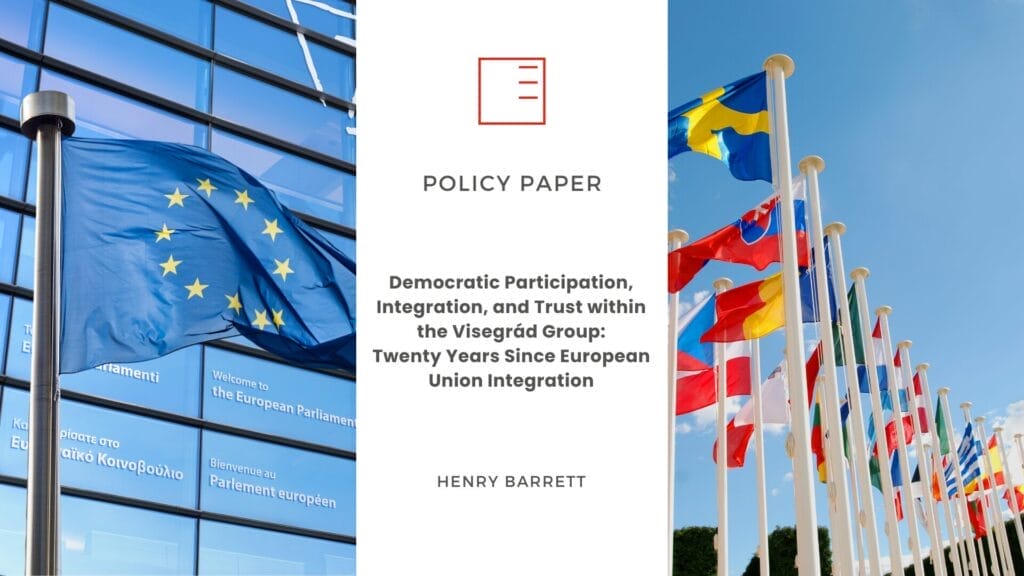
Policy Paper | Demokratická účast, integrace a důvěra v rámci Visegrádské skupiny: Dvacet let od integrace do EU
V4 jako kolektiv představuje obzvláště zajímavou případovou studii minilateralismu v rámci EU vzhledem k četným opakováním a případům využití tohoto místa různými českými, maďarskými, polskými a slovenskými národními vládami. Tyto čtyři středoevropské státy jsou již dlouho ohrožovány velmocí na východě - Ruskem - a velmocí na západě - Německem. Při řízení procesu zbavování se stínu komunistické éry se V4 nejprve projevila přirozenou spřízněností těchto států s cílem dosáhnout vstupu do EU, rozvíjet tržní hospodářství a vytvořit instituce západního typu. Píše Henry Barrett ve svém Policy Paperu.
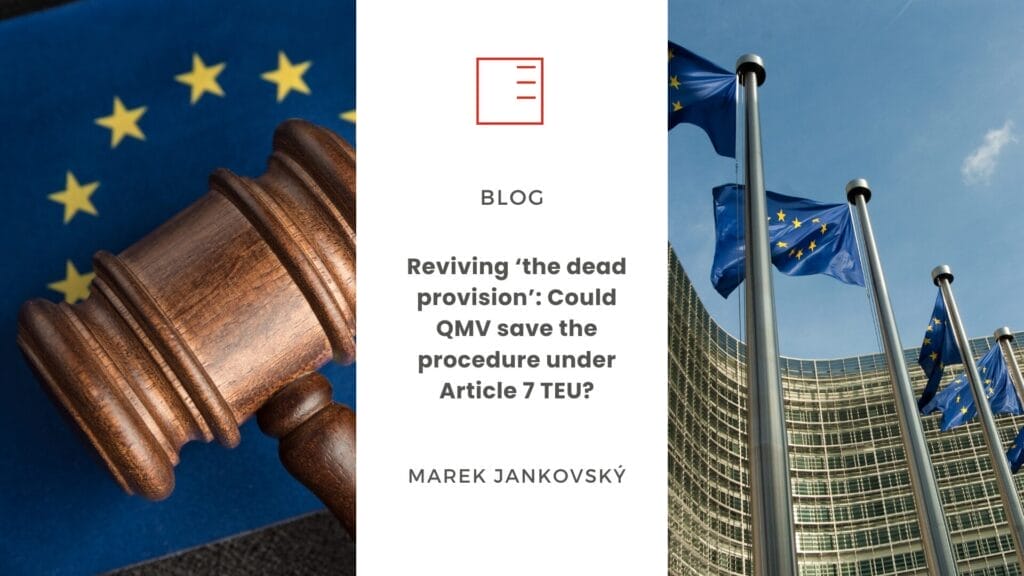
Blog | Oživení „mrtvého ustanovení“: Mohlo by hlasování kvalifikovanou většinou zachránit postup podle článku 7 Smlouvy o EU?
V souvislosti s probíhající debatou o rozšíření EU je na stole otázka revize Smlouvy, která by zajistila akceschopnost EU v budoucnu. Zatímco některé členské státy se domnívají, že současný stav Smluv je pro Unii s více než 35 členy vhodný, jiné volají po revizi Smlouvy o EU před rozšířením. V roce 2022 Evropský parlament posunul diskusi o krok dále a přijal usnesení, v němž navrhuje dalekosáhlé revize Smluv. Píše ve svém blogu stážista bruselské kanceláře Institutu EUROPEUM Marek Jankovský.
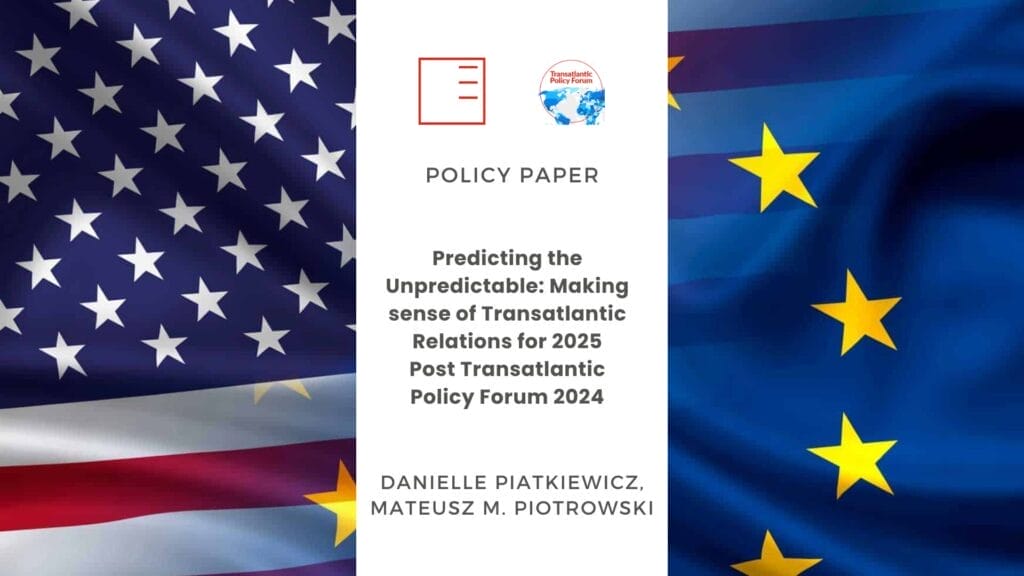
Policy Paper | Předvídání nepředvídatelného: Předvídatelnost a smysl transatlantických vztahů pro rok 2025
Výsledek prezidentských voleb v roce 2024 opět otřásl základy transatlantických vztahů - do jaké míry, však zůstává otázkou. Tento Policy Paper shrnuje klíčové poznatky a úvahy z fóra, na základě poutavých diskusí tento dokument nabízí ucelený soubor poznatků, včetně realizovatelných doporučení a strategického „seznamu úkolů“ pro transatlantickou alianci v nadcházejících letech. Píše výzkumná pracovnice Institutu EUROPEUM Danielle Piatkiewicz a vedoucí analytik Polského institutu mezinárodních vztahů Mateusz M. Piotrowski.
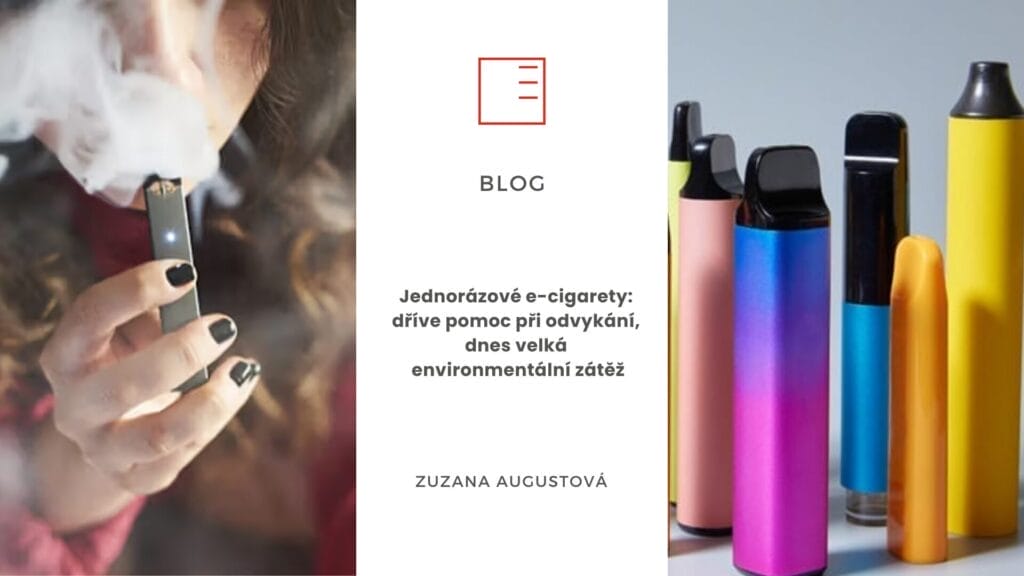
Blog | Jednorázové e-cigarety – dříve pomoc při odvykání, dnes velká environmentální zátěž
Problém jednorázových elektronických cigaret, známých také jako vapky nebo vapes - tomu se věnuje blog od Zuzany Augustové. Autorka v něm popisuje negativní dopady na zdraví, přičemž upozorňuje na snadno návykový charakter, zejména u mladých lidí. Věnuje se také environmentálnímu dopadu těchto výrobků, jelikož jsou složeny z materiálů, které nelze snadno recyklovat, a jejich vyhození do odpadu může způsobit požáry a úniky škodlivých látek. Na příkladu Spojeného království pak ukazuje, jak se vláda pokouší tento problém řešit legislativně, včetně plánovaného zákazu jejich prodeje.
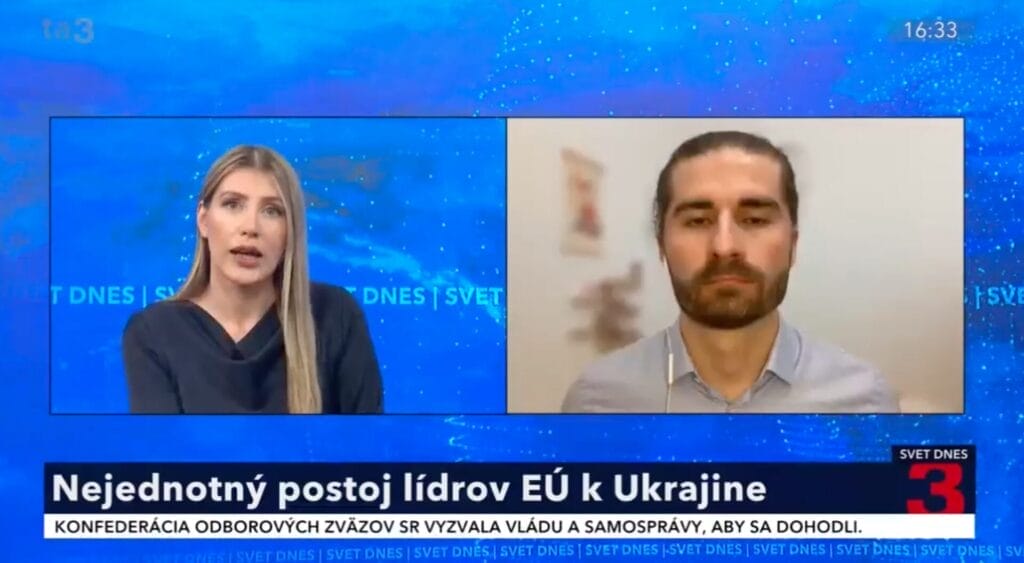
TA3 | Zelenský vyzývá EU a USA k silné podpoře. Rozdíly v postojích ohrožují ambice Ukrajiny
Ukrajinský prezident Volodymyr Zelenský na summitu v Bruselu vyzval k silnému a jednotnému postoji Spojených států a Evropské unie vůči Ukrajině. Názory vedoucích představitelů sedmadvacítky na řadu otázek týkajících se země se však rozcházejí. Někteří prosazují mírové rozhovory, podle jiných jsou ty ale zatím předčasné. Summit lídrů Evropské unie pro TA3 komentoval zástupce ředitele Institutu EUROPEUM Viktor Daněk.
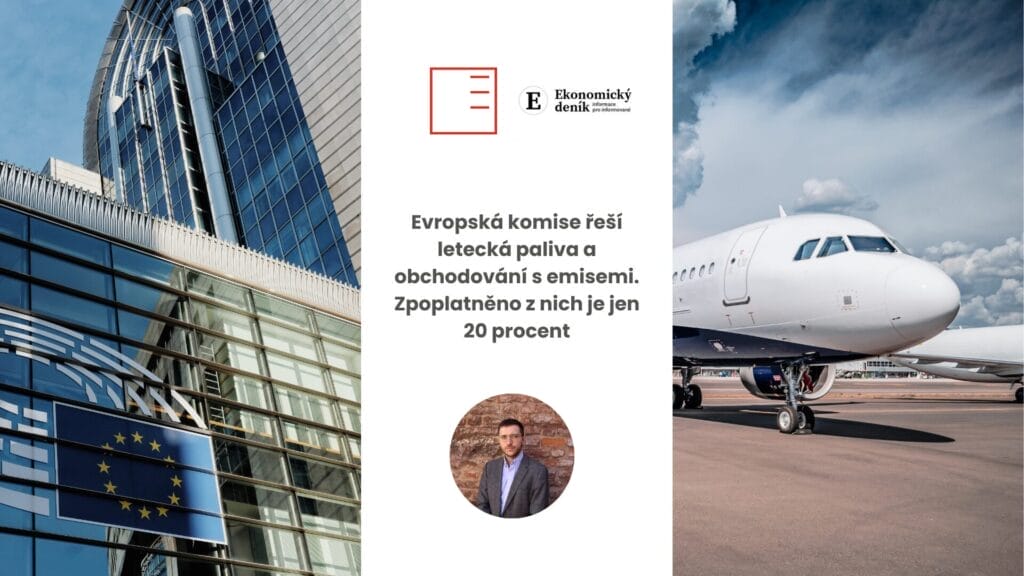
Ekonomický deník | Evropská komise řeší letecká paliva a obchodování s emisemi. Zpoplatněno z nich je jen 20 procent
Letečtí dopravci využívající paliva jako vodík z obnovitelné energie nebo jiná nefosilní paliva by měli získat část bezplatných emisních povolenek. Pro Ekonomický deník komentoval analytik Institutu EUROPEUM Filip Křenek.

Blog | Genderová dimenze rozvojové politiky EU: Případ Namibie
Namibie má největší genderovou propast v Africe. Tento blog analyzuje rozvojovou politiku Evropské unie zaměřující se na genderovou dimenzi. Kritici tvrdí, že zaměření Evropské unie na genderovou rovnost v rozvojové politice je povrchní, blog zkoumá i to, zda tato kritika platí i nadále. Simona Krammerová ve svém blogu zároveň upozorňuje na klíčové problémy, kterým čelí ženy v Namibii.
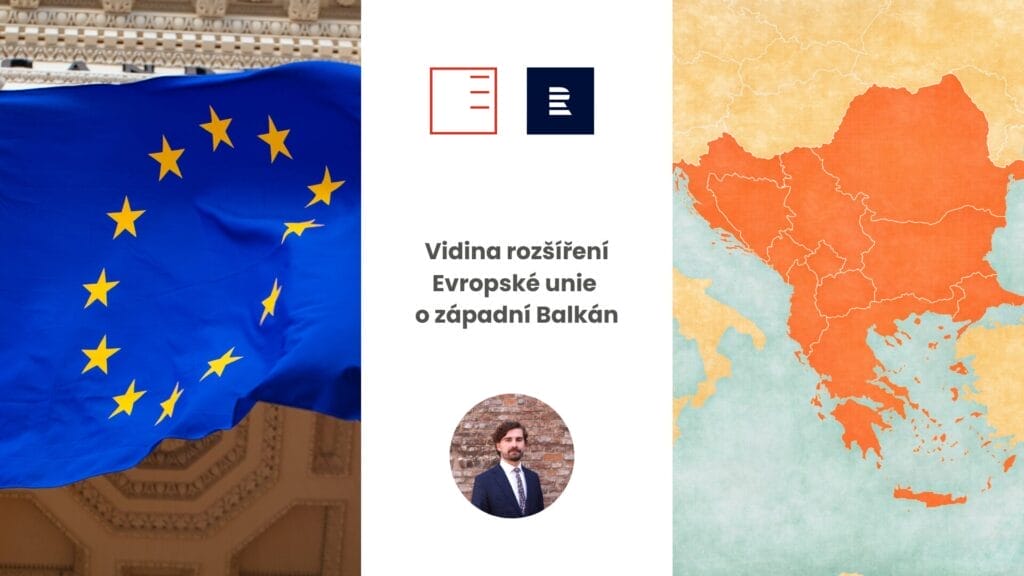
ČRo | Vidina rozšíření Evropské unie o západní Balkán
Může Evropská unie v dohledné době přijmout do svých řad Kosovo nebo Srbsko? Nemá EU27 dostatečné obavy z finanční vojenské podpory Ukrajiny? Co může EU udělat pro podporu evropského automobilového průmyslu? Pro Dvacet minut Radiožurnálu komentoval zástupce ředitele Institutu EUROPEUM Viktor Daněk.
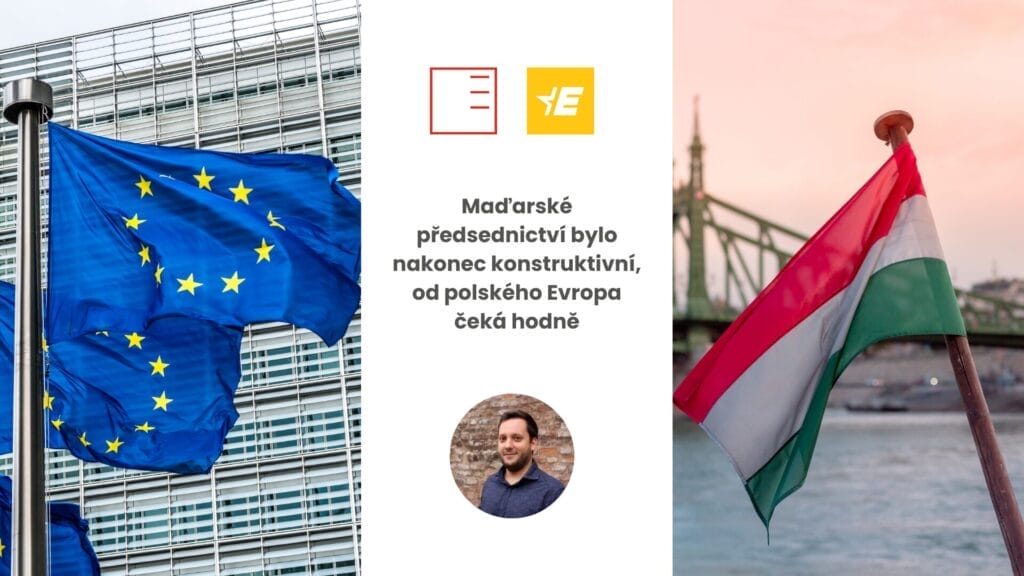
Euractiv.cz | Maďarské předsednictví bylo nakonec konstruktivní, od polského Evropa čeká hodně
Co klíčového se v EU letos odehrálo? A jak by se z toho měla poučit do budoucna?
Pro podcast Euractiv.cz komentoval zástupce ředitele a vedoucí bruselské kanceláře Institutu EUROPEUM Žiga Faktor.

Blog | Revoluce na silnicích: Budeme všichni jezdit na baterky?
Blog se zaměřuje na vliv spalovacích motorů na emise v dopravě a přechod k elektromobilitě jako klíčové opatření pro snížení emisí. Dopravní sektor je v EU druhým největším producentem CO2, přičemž osobní automobily představují 60 % emisí. Evropská unie se rozhodla do roku 2035 ukončit prodej nových vozidel se spalovacími motory a podporuje přechod na elektromobilitu jako prostředek k dosažení klimatické neutrality do roku 2050. V blogu stážistka pražské kanceláře Institutu EUROPEUM Zuzana Vlachová diskutuje o výhodách a výzvách tohoto plánu, včetně ekologických, ekonomických a sociálních dopadů, a také o reakcích automobilového průmyslu a obavách o konkurenceschopnost.
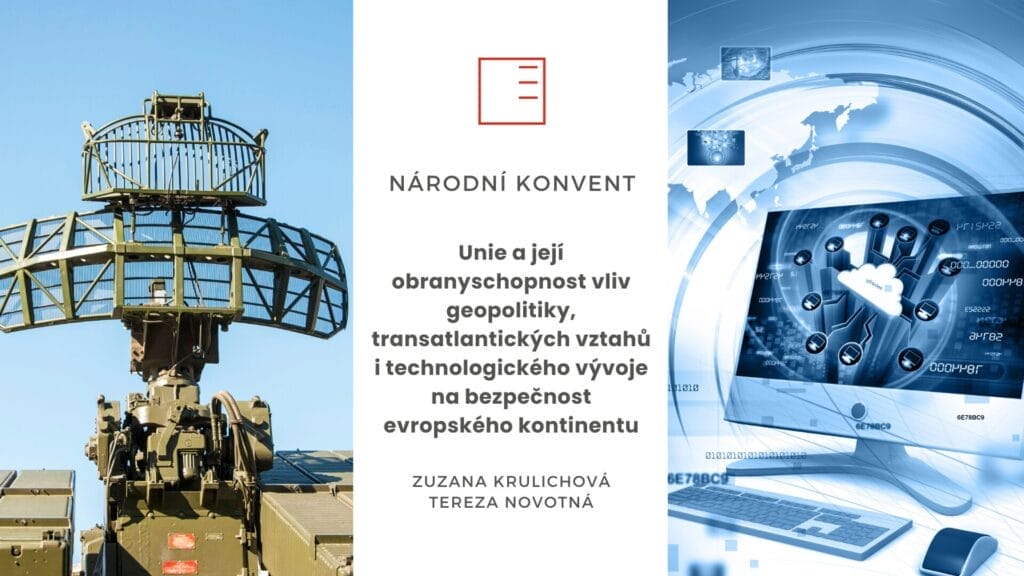
Národní konvent | Unie a její obranyschopnost: vliv geopolitiky, transatlantických vztahů i technologického vývoje na bezpečnost evropského kontinentu
Evropské bezpečnostní prostředí se za poslední dekádu zásadně proměnilo v reakci na narůstající geopolitická rizika. Ruská invaze na Ukrajinu, rostoucí vliv autoritářských mocností, jako jsou Čína a Rusko a eskalace napětí v klíčových regionech, například na Blízkém východě nebo v Indo-Pacifiku, přetvářejí způsob, jakým Evropa vnímá svou bezpečnost a obranu. Tyto výzvy vedou k prohlubování obranné spolupráce v rámci EU i mimo ni, což zahrnuje rozvoj nových politik, struktur a iniciativ a spolupráce s NATO zároveň podtrhuje potřebu strategického sladění mezi evropskými a transatlantickými partnery. Vypracovaly výzkumnice Institutu EUROPEUM Zuzana Krulichová a výzkumná spolupracovnice Tereza Novotná.
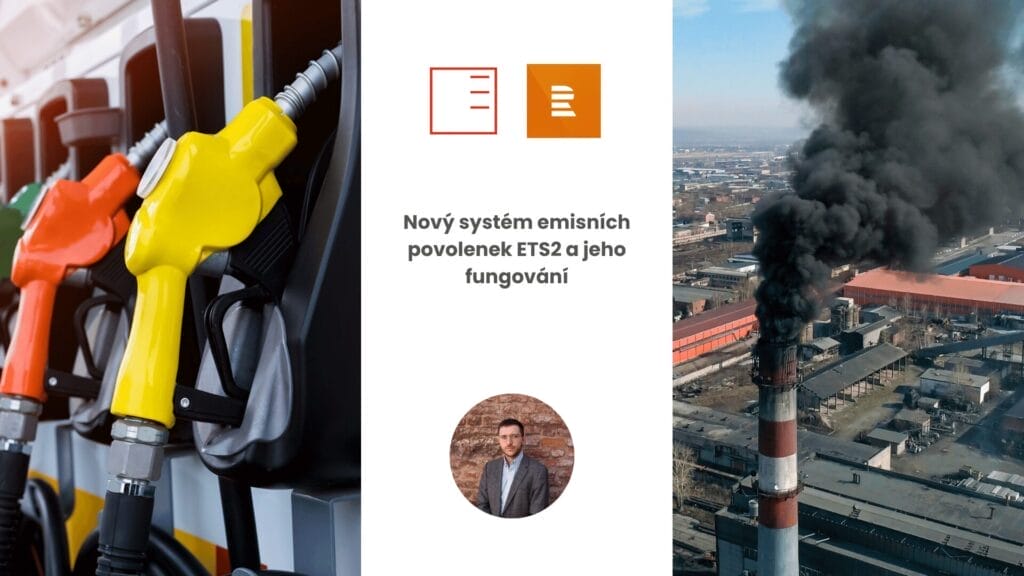
ČRo Plus | Nový systém emisních povolenek ETS2 a jeho fungování
Obchodování s emisními povolenkami je klíčovým nástrojem Evropské unie v boji proti změnám klimatu. Nedávno navržený systém ETS2 přináší zásadní změny, které rozšiřují působnost tohoto mechanismu na nové sektory, jako je doprava a bydlení. Cílem je snížit emise skleníkových plynů a podpořit přechod na udržitelnější způsoby fungování. Pro Český rozhlas Plus komentoval analytik Institutu EUROPEUM Filip Křenek.